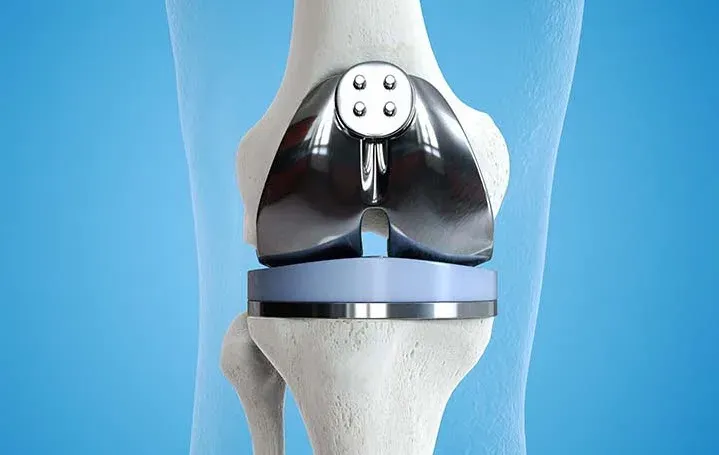Managing pain effectively before, during, and after knee replacement surgery is crucial for a smoother recovery and improved overall experience.
Here’s a comprehensive guide on how to manage pain at each stage:
Before Knee Replacement Surgery
- Medications: Your doctor may prescribe pain relievers and anti-inflammatory medications to reduce pain and swelling before surgery.
- Physical Therapy: Engaging in pre-surgery physical therapy can strengthen the muscles around the knee, which can help manage pain post-surgery.
- Education: Learn about what to expect during and after surgery. Understanding the process can reduce anxiety, which indirectly helps in managing pain.
- Lifestyle Adjustments: Maintain a healthy diet, manage your weight, and consider aids like canes or walkers to reduce stress on your knee before surgery.
During Knee Replacement Surgery
- Anesthesia: An anesthesiologist will administer regional or general anesthesia to ensure you’re comfortable during the procedure.
- Nerve Blocks: Sometimes, nerve blocks are used during surgery to numb the knee area, which can provide pain relief immediately after surgery.
- Surgical Technique: Minimally invasive techniques can result in less tissue trauma and potentially less pain post-surgery.
After Knee Replacement Surgery
- Medications: Your doctor will prescribe pain medications to manage discomfort after surgery. These may include opioids for acute pain and NSAIDs or acetaminophen for ongoing pain management.
- Physical Therapy: Starting physical therapy soon after surgery helps regain strength and flexibility, reducing pain over time.
- Ice and Elevation: Applying ice packs and elevating your leg can reduce swelling and pain.
- Activity and Rest Balance: Gradually increase your activity level as guided by your healthcare team. Balancing activity with adequate rest helps manage pain and promotes healing.
- Supportive Devices: Using assistive devices like crutches or walkers as recommended can prevent putting too much weight on the knee too soon, reducing pain.
- Follow-up Care: Attend follow-up appointments to monitor your recovery progress and adjust your pain management plan as needed.
Additional Tips
- Communicate: Inform your healthcare team promptly if your pain is not well controlled or if you have concerns about your recovery.
- Mind-Body Techniques: Techniques like deep breathing, meditation, or guided imagery can help manage pain perception.
- Nutrition: A balanced diet rich in nutrients supports healing and can indirectly reduce inflammation and pain.
Managing pain before, during, and after knee replacement surgery requires a coordinated effort between you, your healthcare team, and possibly your support network. By following your doctor’s recommendations, staying proactive in your recovery, and utilizing available pain management techniques, you can enhance your comfort and optimize your rehabilitation process.






Comments